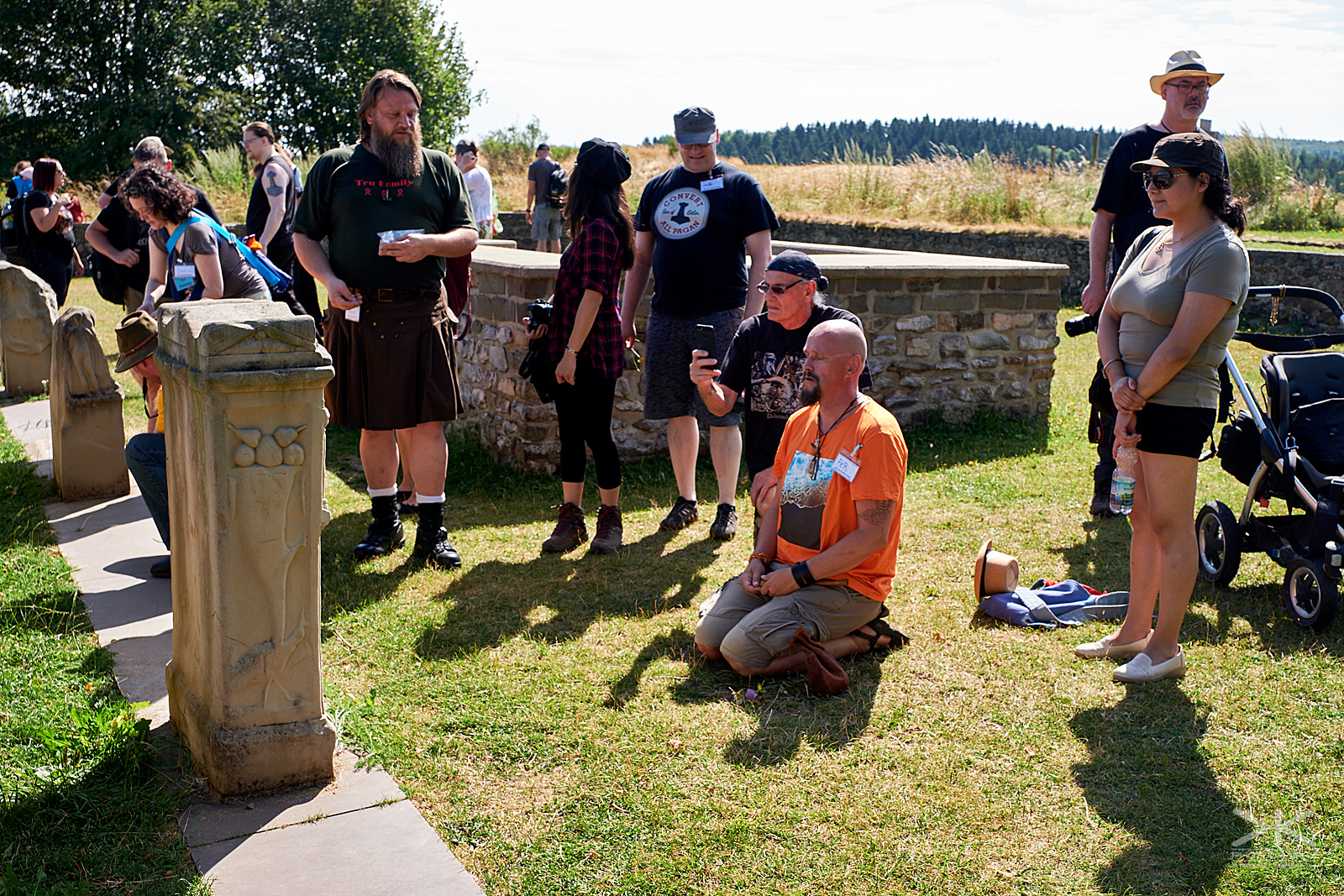Paganism is not dead

Disclaimer: This is not a coming out. I’ve been vocal about my beliefs for years, just not here. I’m not shoving it into everyone’s face every time I open my mouth. I’m a practitioner who courageously put his ideas onto the internet. I’m not an authority on this subject. Everything written below is based on my experience or reading I’ve done.
You might think Paganism is a thing of the past, but it’s very much alive. Much more in recent years than in the last century. But Paganism as a term can be used for a variety of Pantheons. I personally can speak for my Heathen practice – which involves the veneration of old Germanic gods, more commonly known by their Nordic names. You’ve probably heard of some of them, like Wotan/Odin, Frigga, Thunor/Thor, Sif, Freyr, Freya, Loki and more.
It’s important to note that most Paganic traditions existed in an oral society, meaning they only existed in the narrative traditions, the ritual practices, and the material expressions of the myths and rituals. We cannot read about it as with the religions with a canonical book because it was never systematized to the same degree. It was a living faith, constantly changing and developing. It was, and it’s ever-changing. Different from place to place, from period to period.
All the written historical records are not from practitioners but written by outsiders (Tacitus, Jordanes, Ahmad ibn Fadlan …). It displays their understanding of activities they’ve seen once in one place.
That being said, it’s essential to recognize that Heathenry has no dogma or doctrine. Our ancestors practised their beliefs in a way that worked for them, and we do the same today. We may borrow ideas and practices from other religions, just as our ancestors did. They adopted and adapted practices from others if they worked for them, discarding components that didn’t – and we’re doing the same today. However, we do not condone human sacrifice or other practices that are considered immoral today.
Even if some people may tell you otherwise. There is no single “right” way to practice Heathenry, and I’m unsure if there is a “wrong” way. What’s important is the essence of our beliefs and the framework we build around them, which is individual to each of us.
How can we then resurrect such a tradition? If there was virtually nobody practising it within the last thousand years? Or weren’t they? Look at all the folklore – where did it come from? Even if just 10% (and I’m convinced there is much more) of the folklore is of a pre-Christian origin – it’s still practised. Even by your rigorously Catholic grandmother. One commonly spread custom – throwing a coin to a fountain/well/lake is technically a sacrifice to the local spirit.
The tree’s main trunk was burned down, but the roots remained hidden in the soil. We must look for them, rediscover and nurture them to grow a new healthy tree trunk and return Paganism to sunlight.
It wasn’t much different in the past – everything started as one act; a singular person was initially inspired to do it, and because it worked, a tradition began. Same as them, we are collecting practices of the community around us. We collect pieces of information from friends, books and the internet anywhere we can, and each of us is putting together our unique set of practices that work for us, often adjusting it on the go as we feel it. We are growing the same as our beliefs do. Things that are not evolving are dying. Our gods are alive; they’re changing with time, and so do the ways we venerate our gods. Heathenry is not a hobby. It’s a way of life.
While some people may try to resurrect the ancient practices precisely as they were done thousands of years ago – that’s hardly doable as we’re just missing so much from those times. Instead, we can evolve and adapt these practices to fit our modern society. Same as we moved from the longhouses, and we’re no longer living in the same rooms with our cattle. We live in a world where Wi-Fi is considered one of the primary needs. If I see a reason for reconstructing the old forms of our faith in detail, it’s not for the practitioners; that is for academics or reenactors.
Although it may appear paradoxical, providing guidance on adopting a pagan belief system while acknowledging that no one can impose their perspective on you is not contradictory. Having been raised as a Christian, I sought a single definitive source, such as the Bible, to ascertain “the truth.” It took me many years to recognize that the Eddas, for example, are not equivalent to the Bible. The core of these texts is seen as fundamental, but are they? It was written in times when the tradition was persecuted. You can expect a personal and political agenda from the writers.
Nevertheless, the personal beliefs we develop around them are what matters most – our unique paths. While some historical practices may be incorporated into our practice, blindly following them wasn’t ever a goal. What’s important is finding what works for you and your community and living your beliefs meaningfully and fulfilling.

